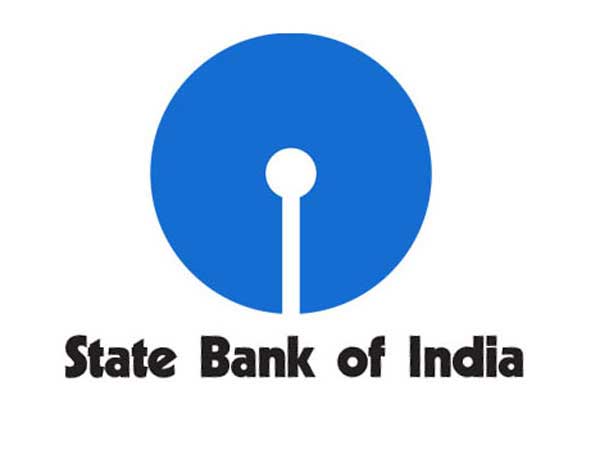SBI Vs HDFC Vs ICICI Vs Yes Bank: Latest Interest Rates On FDs Compared
[ad_1]
Read More/Less
ICICI Bank Fixed Deposit Interest Rates
ICICI Bank has amended its fixed deposit interest rates with effect from December 4, 2021, and following the most recent modification, the bank currently offers an interest rate of up to 5.60 percent to the general public and 6.30 percent to senior people. The bank’s adjusted interest rates on domestic, NRO, and NRE deposits of less than Rs. 2 crore are listed below.
| Tenure | Interest rates p.a. for regular customers | Interest rates p.a. for senior citizens |
|---|---|---|
| 7 days to 14 days | 2.50% | 3.00% |
| 15 days to 29 days | 2.50% | 3.00% |
| 30 days to 45 days | 3.00% | 3.50% |
| 46 days to 60 days | 3.00% | 3.50% |
| 61 days to 90 days | 3.00% | 3.50% |
| 91 days to 120 days | 3.50% | 4.00% |
| 121 days to 150 days | 3.50% | 4.00% |
| 151 days to 184 days | 3.50% | 4.00% |
| 185 days to 210 days | 4.40% | 4.90% |
| 211 days to 270 days | 4.40% | 4.90% |
| 271 days to 289 days | 4.40% | 4.90% |
| 290 days to less than 1 year | 4.40% | 4.90% |
| 1 year to 389 days | 4.90% | 5.40% |
| 390 days to | 4.90% | 5.40% |
| 15 months to | 4.90% | 5.40% |
| 18 months to 2 years | 5.00% | 5.50% |
| 2 years 1 day to 3 years | 5.20% | 5.70% |
| 3 years 1 day to 5 years | 5.40% | 5.90% |
| 5 years 1 day to 10 years | 5.60% | 6.30% |
| 5 Years (80C FD) | 5.40% | 5.90% |
| W.e.f. December 04, 2021. Source: Bank Website |

HDFC Bank Fixed Deposit Interest Rates
On December 1, 2021, HDFC Bank changed its interest rates on domestic / NRO / NRE fixed deposits of less than Rs. 2 crore. Following the most recent modification, the general public will now get a maximum interest rate of 5.50 percent on their deposits, while senior citizens will enjoy a maximum interest rate of 6.25 percent. The latest interest rates on domestic, NRO, and NRE deposits of less than Rs. 2 crore of HDFC Bank are mentioned below.
| Tenor | Interest Rate (per annum) | Senior Citizen Rates (per annum) |
|---|---|---|
| 7 – 14 days | 2.50% | 3.00% |
| 15 – 29 days | 2.50% | 3.00% |
| 30 – 45 days | 3.00% | 3.50% |
| 46 – 60 days | 3.00% | 3.50% |
| 61 – 90 days | 3.00% | 3.50% |
| 91 days – 6 months | 3.50% | 4.00% |
| 6 mnths 1 days – 9 mnths | 4.40% | 4.90% |
| 9 mnths 1 day | 4.40% | 4.90% |
| 1 Year | 4.90% | 5.40% |
| 1 year 1 day – 2 years | 5.00% | 5.50% |
| 2 years 1 day – 3 years | 5.15% | 5.65% |
| 3 year 1 day- 5 years | 5.35% | 5.85% |
| 5 years 1 day – 10 years | 5.50% | 6.25% |
| W.e.f. 1st December 2021. Source: Bank Website |

Yes Bank Fixed Deposit Interest Rates
On November 3rd, 2021, Yes Bank, one of India’s largest private-sector lenders, updated its fixed deposit interest rates. Yes Bank is now giving an interest rate of up to 6.25 percent to the general public and 7.00 percent to senior citizens on resident fixed deposits of less than Rs. 2 crore. The bank’s most recent fixed deposit interest rates are mentioned below.
| Tenor | Interest Rate (p.a.) | Senior Citizen Rates (p.a.) |
|---|---|---|
| 7 to 14 days | 3.25% | 3.75% |
| 15 to 45 days | 3.50% | 4.00% |
| 46 to 90 days | 4.00% | 4.50% |
| 3 months to | 4.50% | 5.00% |
| 6 months to | 5.00% | 5.50% |
| 9 months to | 5.25% | 5.75% |
| 1 Year to | 6.00% | 6.50% |
| 3 Years to | 6.25% | 7.00% |
| W.e.f. 3rd November 2021. Source: Bank Website |

State Bank of India (SBI) Fixed Deposit Interest Rates
The country’s largest lender, State Bank of India (SBI), changed its fixed deposit interest rates at the commencement of this year, and the new rates are in force from January 8, 2021. The following are the most recent interest rates on retail domestic term deposits (below Rs. 2 crore) of SBI.
| Tenors | Interest Rate in % (p.a.) | Senior Citizen Rates in % (p.a.) |
|---|---|---|
| 7 days to 45 days | 2.9 | 3.4 |
| 46 days to 179 days | 3.9 | 4.4 |
| 180 days to 210 days | 4.4 | 4.9 |
| 211 days to less than 1 year | 4.4 | 4.9 |
| 1 year to less than 2 year | 5 | 5.5 |
| 2 years to less than 3 years | 5.1 | 5.6 |
| 3 years to less than 5 years | 5.3 | 5.8 |
| 5 years and up to 10 years | 5.4 | 6.2 |
| W.e.f. 08.01.2021. Source: Bank Website |
[ad_2]










